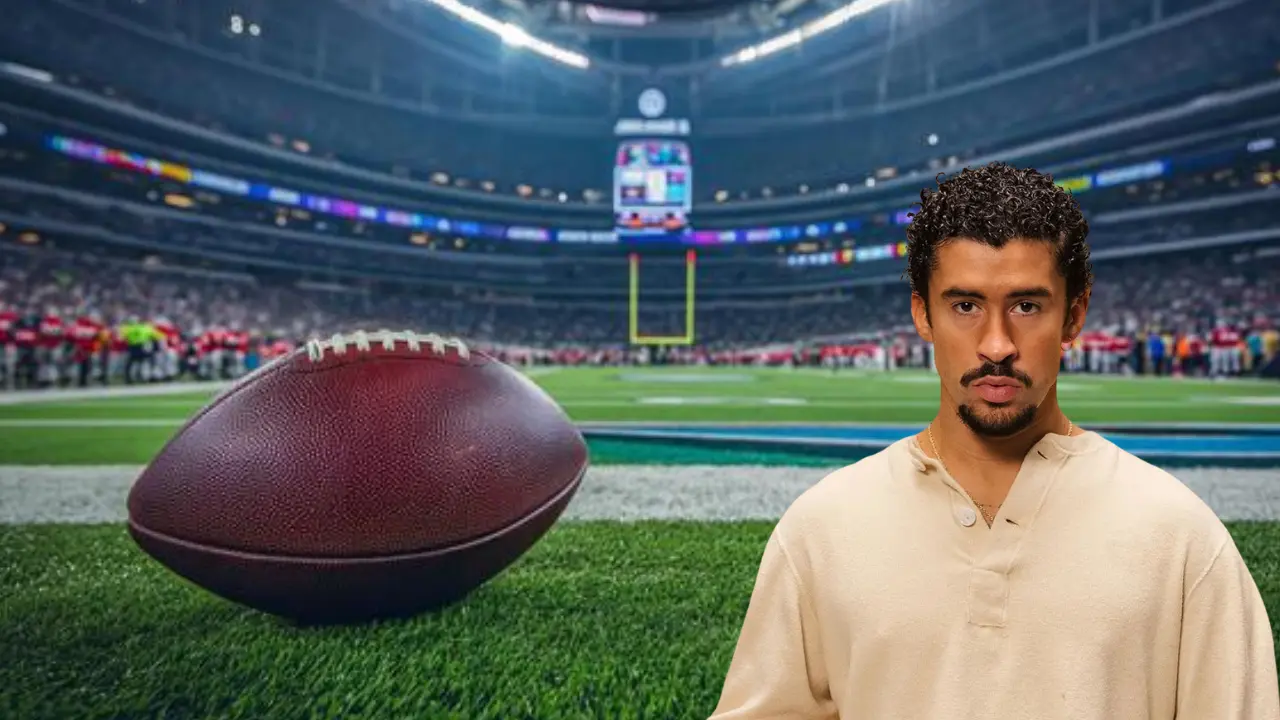
In 2016, Donald Trump used the phrase “bad hombres” to refer to Latino migrants, stigmatizing entire communities with a racist insult that still echoes in U.S. political memory. Nine years later, that echo returns in the form of a cultural controversy: the online pressure to boycott Bad Bunny as the headliner of the Super Bowl LX halftime show, set to take place in San Francisco on February 8, 2026.
When Bad Bunny’s performance was announced, enthusiasm quickly collided with criticism, misinformation, and social media campaigns calling for his cancellation. And while those voices may be small compared to the global excitement, they expose deeper tensions: disguised racism, cultural ignorance, and fear of seeing a Puerto Rican artist dominate the world’s biggest stage—singing in Spanish.
On platforms such as X and TikTok, posts demand his removal on the grounds that he is “not American” or because he “sings in Spanish.” The argument is as old as it is false. What these detractors forget—or ignore—is that Bad Bunny was born in Puerto Rico, a U.S. territory whose people have held full citizenship since 1917.
This detail is crucial: it reveals how the debate goes beyond music and becomes a mirror of prejudices that persist in the country. The outrage is dressed up as “patriotic,” but in truth it’s a denial of Latino visibility in mainstream culture.
Critics also point to language, as if performing in Spanish disqualified him from a global stage in the United States. Yet Latin stars like Jennifer Lopez and Shakira already headlined the 2020 Miami halftime show, singing in Spanish or mixing languages, without generating such an uproar.
Behind the anti–Bad Bunny activism there are no arguments that withstand scrutiny. It’s not about music—it’s about cultural power. If Benito Antonio Martínez Ocasio steps onto that stage in February 2026, some will see it as a symbolic invasion of a space many still want to keep under control.
Bad Bunny, who has topped Spotify’s global charts and filled stadiums across continents, is the most-streamed Spanish-language artist in history. His presence at the Super Bowl makes sense not only from an industry standpoint but also as a cultural symbol of Latino influence in the U.S.
The backlash also resonates with his recent decisions, notably skipping U.S. stops on his world tour, citing fears that ICE (Immigration and Customs Enforcement) might stage raids at his concerts. His choice sent a clear message—protecting fans came first. The paradox is that now he faces the biggest U.S. stage of all.
California, meanwhile, stands as a counterpoint, a state that has openly resisted Trump’s anti-immigrant rhetoric. Governor Gavin Newsom has backed migrant communities, challenged ICE enforcement, and defended California’s multicultural character. San Francisco, the host city, epitomizes that stance.
The Super Bowl’s economic weight and Latino potential
The Super Bowl is far more than sports or entertainment—it’s an economic powerhouse. The 2024 edition in Las Vegas generated an estimated $1.1 billion in revenue, according to the city’s Chamber of Commerce. California expects similar or greater numbers in 2026, with major impacts on tourism, hospitality, restaurants, transport, and merchandising.
In this context, rejecting Bad Bunny isn’t just cultural—it’s economic. Latinos are the fastest-growing demographic in the U.S., with an estimated purchasing power exceeding $3 trillion annually, according to the Latino Donor Collaborative. A Latino headliner can attract additional Spanish-speaking audiences, boost digital streaming across Latin America, and drive brand partnerships aimed at Hispanic communities.
More than music: politics on stage
Bad Bunny is no longer just a musician; he’s a political symbol. His criticism of Trump, his defense of Puerto Rico, and his refusal to bow to fear have made him a lightning rod for allies and detractors alike. Conservative commentators label him an “anti-ICE activist” or dismiss him for not singing in English.
The debate over his Super Bowl appearance is not a mere cultural tantrum—it’s a reminder that, in Trump’s America, exclusionary narratives still seek to dominate. But Bad Bunny embodies a generation that refuses to ask permission to sing, dance, and exist in Spanish on the global stage.
If he takes the stage in San Francisco, it won’t just be a performance—it will be a statement. A Latino artist, performing in Spanish, carrying themes of gender, colonialism, and migration, in America’s most iconic entertainment arena. It will echo identities that resist, proving that entertainment, culture, and politics no longer live in separate boxes.
From Trump’s “bad hombres” in 2016 to Bad Bunny potentially dominating the Super Bowl stage in 2026, what’s at stake is more than a halftime show. It’s the representation of millions of Latinos demanding their place in the U.S. narrative.
And perhaps that is what critics fear most: that when El Conejo Malo steps onto that stage, millions of Latino voices will see themselves reflected. No longer the target of Trump’s “bad hombres” insult, but the confirmation that America’s cultural future speaks—and sings—in Spanish.
Related: Among Vineyards and Tradition: Mexico Celebrates Wine Week